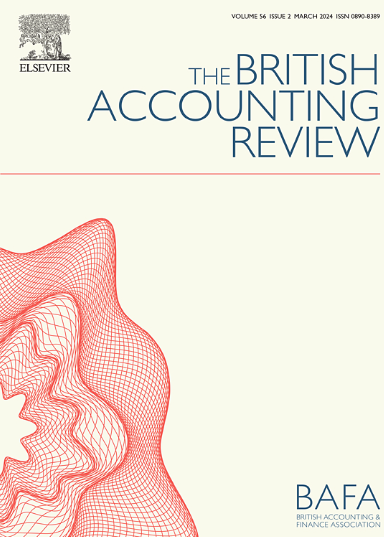转载自:基于机器学习的ESG预期变化和未来股票回报
IF 9.4
3区 管理学
Q1 BUSINESS, FINANCE
引用次数: 0
摘要
这项研究有两个主要目标。首先,它提高了基于机器学习的模型的可靠性和透明度,用于预测环境、社会和治理(ESG)绩效的未来变化。其次,探讨了ESG事前预期变化与未来股票收益的关系。本研究收集了3258份斯托克欧洲600公司的年度观察报告。在ESG预测阶段,使用两种机器学习算法(逻辑回归和随机森林)来开发ESG预测模型。采用超参数优化和前向验证技术来解决低估和信息泄漏问题。基于机器学习的ESG预测模型使用三个指标进行评估:准确性、曲线下面积(AUC)和精度召回曲线下面积(AUPR)。随后,本研究利用预测ESG变化来探讨事前预期ESG变化与未来股票收益的关系。事前预期ESG变化与未来股票收益呈正相关。补充测试还显示,这种正相关关系在大企业和COVID-19大流行之后具有高度和统计显著性。此外,本研究引入了一种鲁棒和透明的方法,用于使用超参数优化和前向验证构建有效的基于机器学习的ESG预测模型。此外,通过纳入机器学习预测的自变量,传统的回归分析得到了现代化。研究结果为利益相关者理论、代理理论和资源基础理论提供了实证支持。最后,本文提供了一些实用的见解,以促进以esg为重点的投资组合决策。本文章由计算机程序翻译,如有差异,请以英文原文为准。
Reprint of: Ex-ante expected changes in ESG and future stock returns based on machine learning
This study has two primary objectives. Firstly, it enhances the reliability and transparency of machine-learning-based models for predicting future changes in environmental, social and governance (ESG) performance. Secondly, it explores the relationship between ex-ante expected changes in ESG and future stock returns. This study collects 3258 STOXX Europe 600 firm-year observations. In the ESG prediction phase, two machine learning algorithms (logistic regression and random forest) are utilised to develop ESG forecasting models. Hyperparameter optimisation and walk-forward validation techniques are employed to address issues of underestimation and information leakage. The machine-learning-based ESG forecasting models are evaluated using three metrics: accuracy, area under the curve (AUC) and area under the precision-recall curve (AUPR). Subsequently, this study investigates the relationship between ex-ante expected ESG changes and future stock returns using the predicted ESG changes. A positive correlation is found between ex-ante expected ESG changes and future stock returns. The supplementary tests also reveal that this positive relationship is highly and statistically significant among large firms and after the COVID-19 pandemic. Moreover, this study introduces a robust and transparent approach for constructing effective machine-learning-based ESG forecasting models using hyperparameter optimisation and walk-forward validation. Additionally, traditional regression analyses are modernised by incorporating machine-learning-predicted independent variables. Furthermore, the findings provide empirical support for stakeholder, agency and resource-based theories. Finally, practical insights are provided to facilitate ESG-focused investment portfolio decision making.
求助全文
通过发布文献求助,成功后即可免费获取论文全文。
去求助
来源期刊

British Accounting Review
BUSINESS, FINANCE-
CiteScore
8.60
自引率
3.90%
发文量
39
审稿时长
76 days
期刊介绍:
The British Accounting Review*is pleased to publish original scholarly papers across the whole spectrum of accounting and finance. The journal is eclectic and pluralistic and contributions are welcomed across a wide range of research methodologies (e.g. analytical, archival, experimental, survey and qualitative case methods) and topics (e.g. financial accounting, management accounting, finance and financial management, auditing, public sector accounting, social and environmental accounting; accounting education and accounting history), evidence from UK and non-UK sources are equally acceptable.
 求助内容:
求助内容: 应助结果提醒方式:
应助结果提醒方式:


